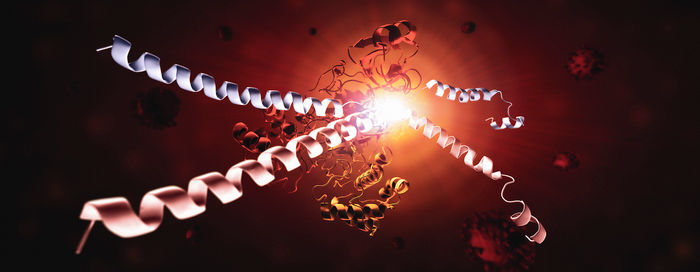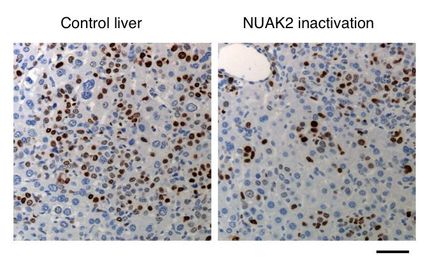Jennerex Completes Patient Enrollment in Phase 1 Trial for Intravenous Administration of JX-594
Jennerex, Inc. announced that it has completed patient enrollment in a Phase 1 clinical trial evaluating the intravenous (IV) administration of JX-594, the company's lead product for the treatment of solid tumors. Jennerex expects to report the results from this trial at the American Society of Gene and Cell Therapy (ASGCT) Annual Meeting in May 2010.
"Enrollment on this trial is now complete. We plan to report results from this trial in the near future showing that JX-594 can be safely and effectively delivered to metastasized tumors through intravenous administration," said David H. Kirn, M.D., president and chief executive officer of Jennerex. "We intend to use the optimized IV dose in our planned Phase 3 study that will evaluate the efficacy of both intratumoral and IV administration of JX-594 for the treatment of liver cancer scheduled to begin in the second half of 2010. In addition, we will use this IV dose in a Phase 2 trial in colorectal cancer."
This open-label, dose-escalation study was completed at four sites in the United States and Canada. A total of 23 patients with solid tumors refractory to standard therapy were enrolled. Patients received a single treatment at one of five dose levels, with follow-up at periodic intervals. The primary endpoints of the trial included safety and determination of the maximum tolerated dose given through intravenous administration. A biomarker analysis predictive of viral replication in distant tumors is also being conducted.
JX-594, currently in Phase 2 clinical trials, is a cancer biotherapeutic product from a proprietary breakthrough class of targeted and armed oncolytic and immunotherapeutic poxviruses. Tumor destruction and safety was shown in patients with diverse cancer types in three Phase 1 trials; treated patients were end-stage and had no effective therapies available. JX-594 multiplies selectively within cancer cells, leading to their destruction. These newly created copies of JX-594 are then released and are able to infect and eradicate other tumor cells both locally and in distant sites in the body. This cycle of JX-594 replication, cancer cell destruction, release and spread is then repeated. Normal cells are not affected by JX-594 resulting in safety and tolerability.
The poxvirus strain backbone of JX-594 has been used safely in millions of people as part of a worldwide vaccination program. This strain naturally targets cancer cells due to common genetic defects in cancer cells. JX-594 was engineered to enhance this natural safety and cancer-selectivity by deleting its thymidine kinase (TK) gene, thus making it dependent on the cellular TK expressed at persistently high levels in cancer cells. To enhance product efficacy, JX-594 is also engineered to express the GM-CSF protein. GM-CSF complements the cancer cell lysis work of the product candidate, leading to a cascade of events resulting in tumor necrosis, tumor vasculature shutdown and an anti-tumoral immune attack.
Most read news
Organizations
Other news from the department research and development

Get the life science industry in your inbox
By submitting this form you agree that LUMITOS AG will send you the newsletter(s) selected above by email. Your data will not be passed on to third parties. Your data will be stored and processed in accordance with our data protection regulations. LUMITOS may contact you by email for the purpose of advertising or market and opinion surveys. You can revoke your consent at any time without giving reasons to LUMITOS AG, Ernst-Augustin-Str. 2, 12489 Berlin, Germany or by e-mail at revoke@lumitos.com with effect for the future. In addition, each email contains a link to unsubscribe from the corresponding newsletter.
More news from our other portals
Last viewed contents
Tecan concludes the sale of the Sample Management activities to NEXUS Biosystems
New Standards in Biotechnology
Valneva and BliNK Therapeutics Launch of New Biotech Company - New company has already secured first round of financing
Charles_Platt
Roche Diagnostics Licenses the Technology used for the LightCycler System to BIOTECON
Closing of public offering of Argos Therapeutics
Pakistan_Red_Crescent_Society
Human_Y-chromosome_DNA_haplogroups

























































